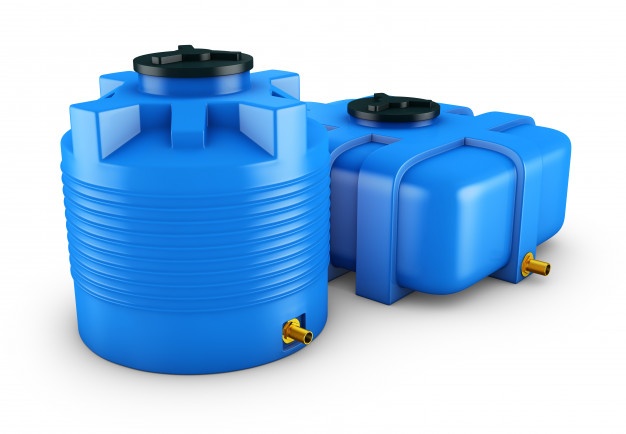Most Kenyan homeowners install water storage tanks to promote rainwater harvesting and water conservation. Underground water storage tanks are normally low profile.
Do you need to install a water storage tank? If so, you’ll need to choose either above-ground or underground water storage. The type of tank you choose depends on your needs, so both are good options.
Uses for Water Storage Tanks
Property owners use water storage tanks (also called cisterns) to store water for consumptive purposes, domestic as well as commercial.
1. Potable Water Source
You typically find water storage tanks in areas where a potable water source is not readily available. Examples are areas with a low well water capacity or areas where the groundwater quality is poor.
You can use cisterns to store water to supplement private water well. You can also use them to store water for emergency use.
2. Rainwater Harvesting
In Kenya, we mostly use storage tanks to harvest rainwater. Moreover, heavy rainwater runoff can cause soil erosion, which damages ecosystems and endangers wildlife.
Diverting rainwater runoff into a water storage tank allows us to control water distribution. The benefits of this are greater on-demand irrigation, sustainability, and recycling.
3. Fire Suppression and Sprinkler Reservoirs
Fire suppression systems must have instant access to water. Commercial properties like manufacturing facilities and warehouses often install water tanks for emergency use to supplement their fire sprinkler systems.
4. Greywater
Greywater is water that may contain minor contaminants but is still useful for non-drinking purposes. You can collect greywater in a number of ways, such as capturing roof runoff.
5. Agri-Business
Farmers and ranchers in any climate need access to water. Underground water storage tanks provide water for irrigating crops or watering livestock, regardless of weather patterns.
Underground Water Storage Tanks
An underground tank can be defined as one with no less than 10 per cent of its combined volume underground. These are also called in-ground water tanks.
Industries use underground storage tanks to manage petroleum products and other potentially hazardous materials. Though, underground water tanks are common for commercial and residential use as well.
Advantages of Underground Storage Tanks
Underground water storage is ideal for those who want to economize space. One benefit to underground water storage is protection from theft, vandalism, and severe weather damage.
There are other advantages to having a low-profile water tank as well.
a) Low Profile
Placing your storage tank underground means you preserve more of your prime real estate space. You can use that space for any number of useful purposes like lawn, driveways, and so on.
In some cases, property owners have built modular structures on top of an underground tank. Most of the time, no one will know you have a water storage tank. Some piping is visible, though the tanks have a very low profile.
You have more opportunity to enjoy your space and landscaping. Neighbours often dislike the look of added structures such as a large tank sitting on your property.
b) Maintain a Steady Temperature
Underground tanks are insulated against the heat and the cold. You can trust that the tank will maintain a steady temperature year-round.
Disadvantages of Underground Water Tanks
Underground tanks do come with a number of disadvantages as well.
a) Higher Cost
The first disadvantage is the cost. Installing an underground tank means spending extra money on the excavation.
Then, you will have to reinforce the tank and install a pumping system. You also need to back-fill the space and pave some areas.
b) Difficult to Maintain
Additionally, cracks can form in the tank. It can be hard to find them after the tank is installed. Also, certain types of soil are not suitable for underground tanks. Soil that has a high clay content is one.
Above Ground Storage Tanks
An above-ground water tank offers a more economical solution. Above ground storage tanks are easy to install and maintain as well. Cost isn’t everything, as other features make an above-ground tank worthwhile.
There are a few disadvantages as well.
Advantages of Above-Ground Water Tanks
Above-ground tanks are less expensive than underground tanks because they are easier to install. With an above-ground tank, you don’t need to do all the digging and reinforcing.
a) Easier to Maintain
Because you don’t bury the tank, you can quickly troubleshoot and repair an above-ground tank.
After the tank is fitted, you can quickly spot any cracks or other damage that may develop. The entire tank is accessible, which makes repairs less costly.
b) Aesthetics
Some property owners may not want a visible tank, thinking it would be an eyesore. Though, you can work an above-ground tank’s appearance to your advantage.
You can camouflage it to blend in with your property’s architecture and landscaping. Or, you can show off the feature. This can be beneficial for a business owner who wishes to display the company’s eco-credentials.
Homeowners also use their tanks as a statement for water conservation. They often place signage on the tank to promote awareness.
Disadvantages of Above-Ground Waters Tanks
The fact of the matter is, above-ground tanks are exposed to the environment and the elements. They can be damaged by fire, weather, and natural disasters.
Vandalism is another unfortunate risk. Exposure also increases the chance of leaks. If you install an above-ground tank, be sure to inspect the tank on a regular basis to minimize these risks.
a) Difficult to Maintain Temperature
Water tanks can freeze during winter. They also get very hot during hot season Above-ground tanks are often smaller than underground tanks.
All these factors combined mean that above-ground tanks don’t maintain an even water temperature. They are better suited for use as an emergency water source for this reason.
b) Government and Other Regulations
Government regulations are stringent regarding above-ground storage tanks. You must adhere to zoning regulations as well.
You must also follow guidelines for spill control, preventing theft and vandalism, and secondary containment protocols.
Choosing a Water Storage Tank
For safety reasons, many property owners choose underground water storage tanks. Though, above-ground tanks are popular due to the lower cost and ease of installation.














